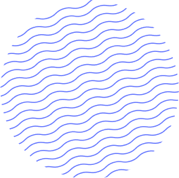

Private 1-1 In-Person Tutoring
PE - Principles and Practice of Engineering - Mechanical - Thermal and Fluid Systems Tutors Near Me
Less than 1% of all applicants become tutors for PE - Principles and Practice of Engineering - Mechanical - Thermal and Fluid Systems students for our company. We have a nationwide roster of PE - Principles and Practice of Engineering - Mechanical - Thermal and Fluid Systems experts, seasoned educators, and curriculum specialists eager to help. Reach out and we’ll connect you with a top-tier tutor!
CALL US NOW: 888-819-4833
PE - Principles and Practice of Engineering - Mechanical - Thermal and Fluid Systems Tutors near me have graduated from






Let us help
Connect you with a Tutor
Great Resource for Preparing for PE Exam
Sophia Roberts
Comprehensive Coverage of PE Exam Topics
Owen Martin
Easy to Understand and Well-Organized
Gabriel Phillips
Practical Approach to PE Exam Preparation
Ryan Herrera
What people say about our local PE - Principles and Practice of Engineering - Mechanical - Thermal and Fluid Systems Tutors
Darian
Studied: PE - Principles and Practice of Engineering - Mechanical - Thermal and Fluid Systems
Louis
Studied: PE - Principles and Practice of Engineering - Mechanical - Thermal and Fluid Systems
The benefits of PE - Principles and Practice of Engineering - Mechanical - Thermal and Fluid Systems tutoring near me
"PE - Principles and Practice of Engineering - Mechanical - Thermal and Fluid Systems is an exam that focuses on the principles and practices of engineering in the mechanical, thermal, and fluid systems field. This exam is designed to test the knowledge and skills of individuals who are seeking a professional engineering license in this specific specialization. It covers a wide range of topics and is an important step in the career path of mechanical engineers.
Typically, PE - Principles and Practice of Engineering - Mechanical - Thermal and Fluid Systems is taken by individuals who have completed their undergraduate degree in mechanical engineering and are looking to become licensed professional engineers. This exam is typically taken after a few years of working in the industry, as it requires a certain level of experience and understanding of the field. It is also taken by those who are looking to advance their career and become more specialized in the thermal and fluid systems aspect of mechanical engineering.
The topics covered in PE - Principles and Practice of Engineering - Mechanical - Thermal and Fluid Systems are vast and include areas such as thermodynamics, heat transfer, fluid mechanics, energy conversion, and more. The exam also tests the individual's understanding of codes, regulations, and safety standards related to these systems. It covers both theoretical knowledge and practical application, making it a comprehensive assessment of an individual's skills and expertise in this field.
One of the main benefits of in-person PE - Principles and Practice of Engineering - Mechanical - Thermal and Fluid Systems tutoring is the personalized and individualized attention that a student can receive. A tutor can assess the strengths and weaknesses of a student and tailor their teaching methods accordingly. They can also provide one-on-one support and guidance, allowing the student to ask questions and receive immediate feedback. This type of tutoring can also be more efficient as it focuses on the specific areas that a student needs to improve on, rather than a general review of all topics.
In conclusion, PE - Principles and Practice of Engineering - Mechanical - Thermal and Fluid Systems is an important exam for those pursuing a career in mechanical engineering. It covers a wide range of topics and is typically taken by experienced individuals who are looking to become licensed professional engineers or advance their career. In-person tutoring for this exam can provide personalized attention and targeted support, making it a valuable resource for those preparing for this challenging exam."

Solidify your preferences and requirements

Interview, Curate, and connect

White Glove Management
FAQ for PE – Principles and Practice of Engineering – Mechanical – Thermal and Fluid Systems Tutoring
Everything begins with a conversation. As a parent, guardian, teacher, or school administrator, you can reach out to one of our dedicated education experts by phone or through the 24/7 messaging system on our website. We then work to understand your preferences and goals, and embark on a collaborative process in order to match you with the best PE – Principles and Practice of Engineering – Mechanical – Thermal and Fluid Systems tutor for your student. From then on, our tutors will get to know your child and develop an instruction plan centered around their distinct challenges, or in the case of enrichment, academic desires. The plan will include study tools, homework help, test preparation resources, and engagement strategies based upon a student’s learning style and the modern standards of educational science. Of course, none of this would be effective without our commitment to high-impact, one-on-one instruction, which we offer both in-person and online. Through these regular sessions, we not only improve academic performance in PE – Principles and Practice of Engineering – Mechanical – Thermal and Fluid Systems , but also find ways to make education fun. As a result, by the end of the program, our students develop into more confident, curious learners. It is also critical that we maintain detailed reports throughout the year. These records allow us to monitor the progress of students, track milestones, and ensure that all of our trusted tutors continue meeting the rigorous standards of Top Tier Tutoring.
At Top Tier Tutoring, we understand the many financial pressures that often accompany the life of any given student. Books, laptops, camps, extracurriculars—while nurturing, these essential resources can also become a heavy burden for families and schools everywhere. Just as each child’s struggles and interests will vary, so too will their needs. Some students may require direct support in order to close a learning gap with the rest of their peers. Others may be far ahead, hungering for enrichment, and wanting to delve deeper into a specific topic or module. Likewise, in certain cases, one student may only be in need of test preparation, while for another, we may suggest a highly-involved, continuous program in order to grasp the fundamental concepts of a class. As such, it is our belief that no student should have to sacrifice a quality, customized education due to economic constraints. This is why we are always committed to building a tutoring plan that adapts to the idiosyncratic needs of every child, and every budget. If you contact us by phone or through our website, we will work with you to ensure that your student is afforded the highest quality of mentorship, instruction, and care.
The frequency and duration of tutoring can depend on a number of factors. These can include student availability, initial academic level, and workload. Our tutors provide suggestions with reference to each student, according to the greater learning outcomes obtained from educational data around the world. Nevertheless, ultimate discretion rests in the competent hands of the parents and schools that we work with. In most cases, we propose one to three direct sessions per week, which aligns with the modern standards of high-impact tutoring. In situations where there is a particularly large learning gap, it is also effective to employ a greater concentration of initial lessons at the start, which eventually taper down once the student gets back on track. Ultimately, there is no definitive frequency that works best for all children. Sports seasons and family circumstances shift throughout the school year, and we try to be as flexible as possible while keeping everyone on the right path. Likewise, our tutors are constantly engaged with progress reports and are quick to respond to academic developments. If a student falls behind on their goals, or instead excels far beyond them, we will adapt the frequency of sessions in accordance with those changes.



